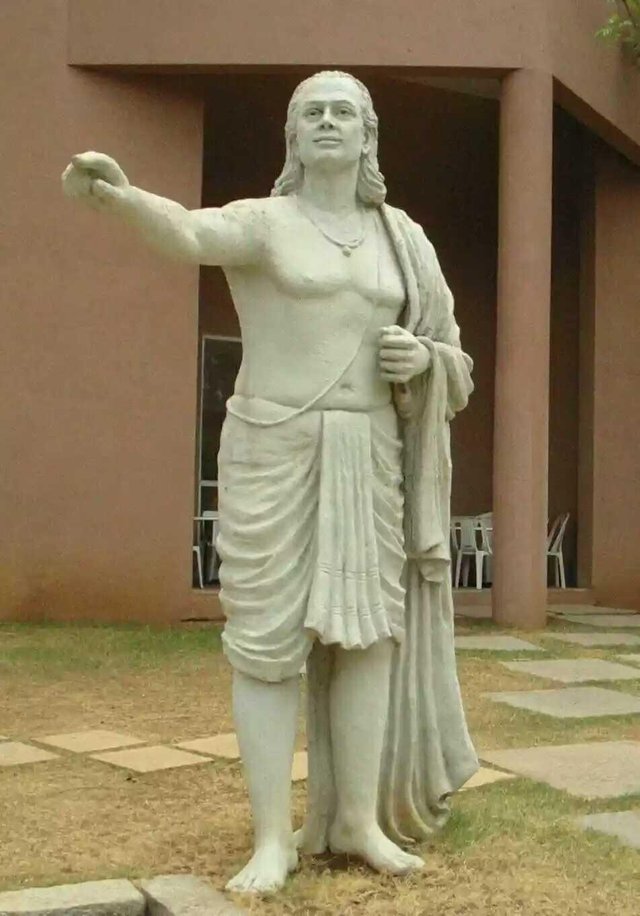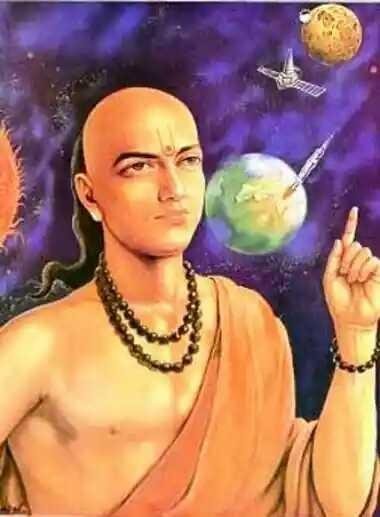ARYBHATA THE GREAT

Aryabhata was one of the great classical era in India. In fact, he is considered to be the first great mathematician in a long line of visionary mathematicians who would emerge from India from the classical era onward. His published works were many years ahead of their time and a significant amount of modern mathematics and astronomy can be traced back to the studies and works associated with him.
Early Life and Education
Aryabhata was born around 475 A.D. in the region known as Ashmaka. Historians cannot be completely sure when he was born, but one of his works notes it was written around 3,600 years into the Kali Yuga, so a rough estimation about the time in which he was born can be ascertained. It is really not even known were for sure he was born as Ashmaka. It might be considered a nickname of sorts for Maharashtra or Dhaka.
The remaining historical records from the era piece together a hypothesis about his advanced level education taking place at Kusumapura and that he lived in this area for quite some time. There is some speculation that Kusumapura is actually another region and may really be Pataliputra, which was actually the location of where a major astronomical observatory was located.
Therefore, it would make great sense that this was where he would have invested a great deal of time learning to be a great astronomer. There were not exactly scores of other opportunities for him to take advantage during the classical era as institutions in which to learn astronomy were likely very limited.
Some historians believe, although there is no concrete proof this is the case, that Aryabhata would go on to become the actual person in charge of the university located at Nalanda. Others have asserted that Aryabhata went on to create an actual observatory that was built in Taregana within the Sun temple.
The Works of Aryabhata

Aryabhata is known for one very great work and this would be the Aryabhatiya. This was one of the many treatises he would write during his lifetime. Unfortunately, not all of what he had written still exists. A number of his works have been lost and historians can only speculate as to what might have been the great value of their content.
The Aryabhatiya was a well-constructed work that covered many different facets of mathematics and astronomy. Portions of the work were quoted in other works and this has allowed it to avoid becoming lost. Within the mathematics portion of the work, a great deal was written about high level math topics such as plane trigonometry and spherical trigonometry, along with sections on arithmetic, quadratic equations, and algebra.
There are 108 verses in the text and the style of writing is very tight and direct. It can be said the work is written in a manner not dissimilar from the sutra literature crafted at the time. Within the work, information is revealed about the table of sines, progressions in geometry and arithmetic, the relationship of time, the positions of the planets, and insights into celestial spheres. To a great extent, the work was many years ahead of its time. Both thought-provoking and introspection inducing, anyone interested in the subjects of math and astronomy would find it worth reading.
Fragments of the Arya-siddhanta
Another work known as the Arya-siddhanta is really only known through references to it in the works of Varahamihira, Brahmagupta, and Bhaskara I. This work very heavily goes into great detail into equipment used in astronomy and gives great insight into what astronomers at the time used as part of their profession.
Heliocentrism
As with many of the great astronomers in history, Aryabhata promoted the notion the earth spun on its own axis and the sun revolved around the earth and not the other way around. This belief is known as heliocentrism and it was deemed a heresy in most parts of the world until well past the Middle Ages.
Last Days of Aryabhata
Aryabhata is believed to have died around 550 A.D. He has left an amazing legacy to be sure. A great many modern.
Hi! I am a robot. I just upvoted you! I found similar content that readers might be interested in:
http://totallyhistory.com/aryabhata/
Congratulations @sumit096! You received a personal award!
You can view your badges on your Steem Board and compare to others on the Steem Ranking
Vote for @Steemitboard as a witness to get one more award and increased upvotes!